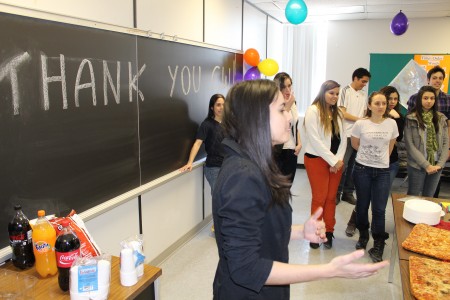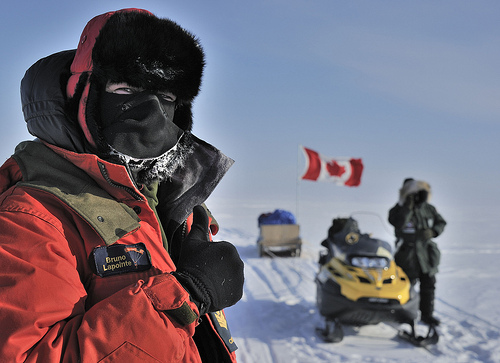
Kings University College at Western University in Ontario, Canada
Every country, province, state – even neighborhood – has its own unique slang and colloquialisms. This is a big part of local culture, and learning to use these expressions is an important rite of passage for newcomers.
Canada is no exception, and the phrases ESL students will encounter as newcomers to Ontario are sure to cause some confusion!
With that in mind, we decided to de-code and explain five uniquely Canadian terms you’re likely to hear when you visit Ontario:
Hydro (pronounced hahy-droh)
The term hydro is a reference to hydroelectricity, the most common source of energy used to power Canadian homes. You’ll hear people refer to hydro in particular when talking (or complaining) about their monthly electrical bill. When renting an apartment in Canada, we usually ask up front if the total price includes hydro.
Kitty Corner (pronounced kit-ee – kawr-ner)
“I’m parked kitty corner from the entrance to our school.” No, that statement doesn’t have anything to do with cats. Actually it has to do with dice. Quatre, the French word for “four” was introduced to the English language as a way to define four-cornered dice. Over time, English speakers transformed the term into “catre-corner”, which soon became “kitty-corner”. Now we use the phrase in every-day conversation to describe something that’s positioned on a diagonal. So your friend’s car is parked diagonally across from the entrance to the school.
Loonie (pronounced loo-nee)
When you’re taking a break between classes at your ESL school and a fellow student asks if you have a loonie for the vending machine, it’s important to realize that they’re asking you for money: $1 to be precise. A few decades ago, Canada switched from paper currency to coins for some denominations. The $1 coin has the image of a loon (a type of Canadian bird) on one side, so people started calling it a “loonie”. The name stuck and a few years later, it inspired the nickname of the $2 coin, the “toonie”.

Culture Works students take a coffee break at Apple Land Station in Thorndale, Ontario
Double-Double (pronounced duhb-uh l – duhb-uh l)
If you are pursuing an intensive English program in Canada, you have probably already encountered this term. It will most likely happen during a late-night study session when you just need a bit of caffeine to keep you going. A double-double is a cup of coffee served with two creams and two sugars. It originated as a term in the hugely popular coffee chain Tim Horton’s, but soon spread all over Canada as a typical way to order coffee.
Toque (pronounced tohk)
If you’re studying English as a second language in Canada, not only should you get familiar with the term toque, but you should also plan on buying one before the winter season starts. A toque is what Canadians call a winter hat. It was adapted from the French term tuque which was originally popularized by the coureurs de bois (French and Metis fur traders) in the 19th century.
Are you excited to try out some of these Canadian colloquialisms? Come to ESL school in Canada and you’ll get your chance to chat like a local!








































